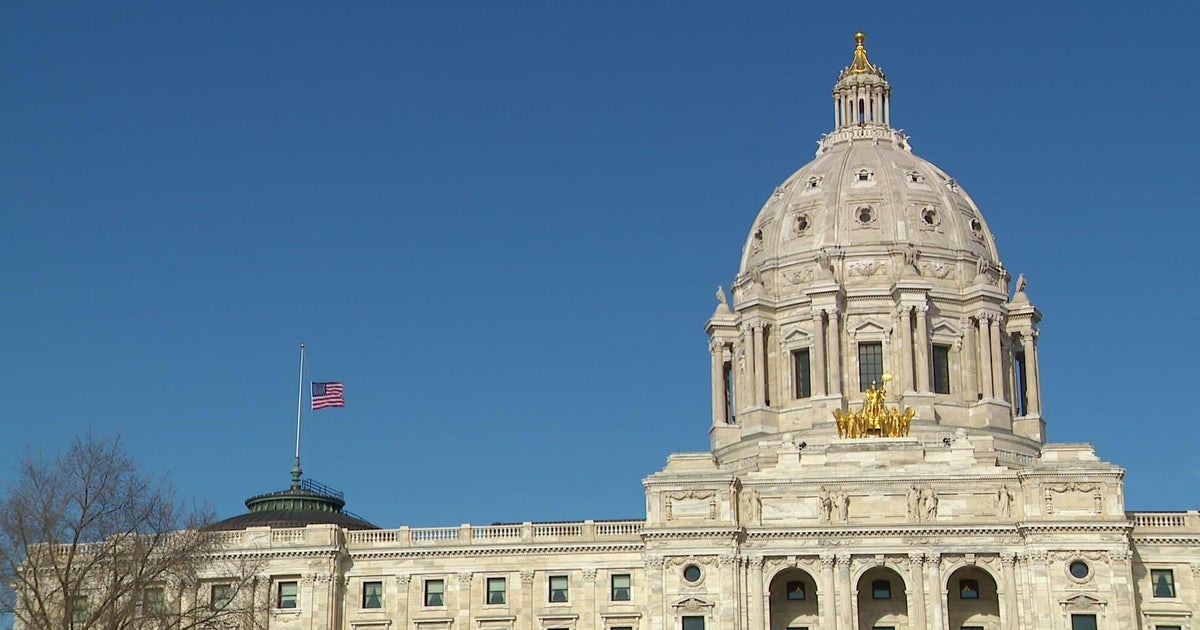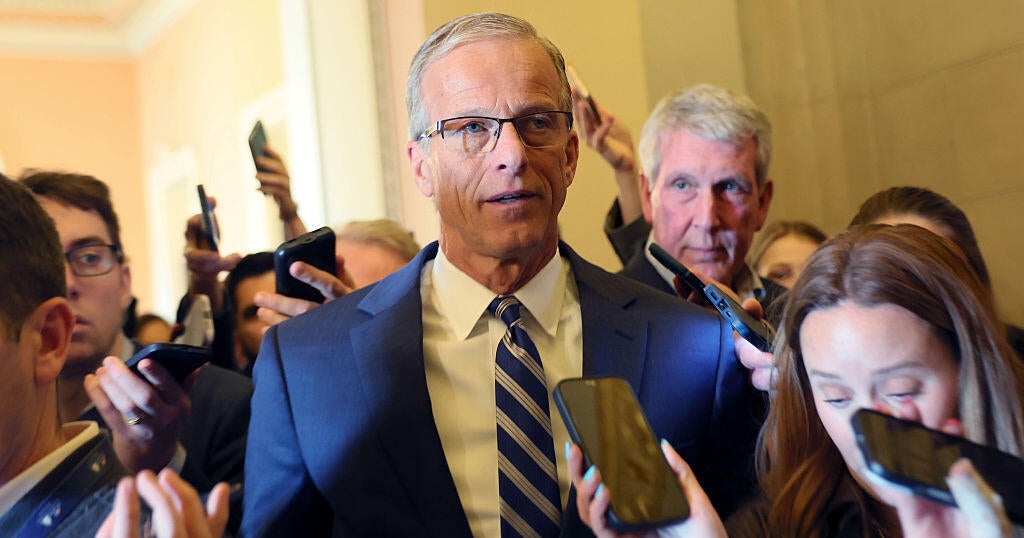"Normal tourist visit": Some Republicans downplay January 6 riot amid Democratic objections
House Republicans sought to downplay the January 6 attack on the U.S. Capitol in a contentious hearing on Wednesday, while Democrats clashed with former Trump administration officials over the response to the assault.
The hearing came shortly after House Republicans voted to remove Congresswoman Liz Cheney from her post as conference chair for her criticisms of former President Donald Trump, and indicated the widening gap between the two parties' recollection of the day. A mob of Trump supporters laid siege to the Capitol on January 6 in a violent attack that resulted in five deaths, hundreds of injuries and damage to Capitol property.
The House Oversight and Reform Committee heard from former acting Attorney General Jeffrey Rosen and former acting Defense Secretary Christopher Miller, who were both serving in the Trump administration on January 6. Metropolitan Police Chief Robert Contee also testified.
Rioters overran the Capitol shortly after Mr. Trump delivered a speech at a rally urging supporters to "fight like hell" to overturn the election results. Then Vice President Mike Pence and members of Congress were gathered at the Capitol that day to certify President Joe Biden's Electoral College victory.
On Wednesday, Republicans repeatedly denounced characterizing the riot as an "insurrection." Congressman Andrew Clyde said "there was an undisciplined mob," but argued that "to call it an insurrection in my opinion is a bold-faced lie."
"Watching the TV footage of those who entered the Capitol and walked through Statuary Hall, showed people in an orderly fashion in between the stanchions and ropes taking pictures. If you didn't know the footage was from January 6, you would actually think it was a normal tourist visit," Clyde said.
But Clyde's description undersells the violence of the day. Rioters attacked law enforcement officers defending the Capitol, injuring 140 Capitol and Metropolitan Police officers. One officer died the day after the attack, and two died by suicide shortly thereafter. Mike Fanone, a Metropolitan Police officer attacked by rioters on January 6, said in an open letter to lawmakers last week that he is still traumatized by the day's events.
"I struggle daily with the emotional anxiety of having survived such a traumatic event but I also struggle with the anxiety of hearing those who continue to downplay the events of that day and those who would ignore them altogether with their lack of acknowledgement," Fanone said in his letter.
Speaker Nancy Pelosi denounced Clyde's comments during her weekly press conference on Thursday.
"Well, I don't know a normal day around here where people are threatening to hang the vice president of the United States or shoot the speaker," Pelosi said. "It was beyond denial, it fell into the range of sick."
Congressman Pat Fallon also said Wednesday that descriptions of the attack were overblown.
"Our friends in the mainstream media are quite fond of labeling January 6 as an insurrection or even a rebellion. But are those descriptions accurate, or are they hyperbolic?" Fallon asked. He did acknowledge an "unruly and dangerous mob of about 400 broke the law, trespassed, committed various other crimes and endangered the health, safety, wellbeing and lives of many innocent people."
GOP Congressman Paul Gosar suggested during the hearing that it was wrong for federal law enforcement agencies to seek assistance from Americans in tracking down individuals photographed and videoed potentially violating federal law on January 6.
"The government has even enlisted Americans to turn in their own neighbors," Gosar said.
Gosar and Republican Congressman Jody Hice also both discussed the death of Ashli Babbitt, who was shot and killed by a Capitol Police officer as she and a group of protesters attempted to gain access to the House chamber, where most representatives were still sheltering at the time.
"She was wrapped in a U.S. flag," Gosar said. Hice said "it was Trump supporters who lost their lives that day, not Trump supporters who were taking the lives of others."
The Justice Department announced last month it would not bring charges against the officer who shot Babbitt, determining the officer could reasonably believe it was necessary to shoot Babbitt out of self-defense or in defense of those evacuating the House Chamber.
Meanwhile, Democrats confronted Miller and Rosen on Mr. Trump's actions in the days leading up to and on January 6. Miller was challenged by Democratic Congressman Stephen Lynch, who asked whether he still believed the attack would have happened if not for Mr. Trump's speech at a rally earlier that day. Miller said in March that the events of January 6 "wouldn't have happened" without Mr. Trump's speech.
"I think I'd like to modify my original assessment," Miller said. He added it now "seems clear that there was some sort of conspiracy where there were organized assault elements that intended to assault the Capitol that day." When Lynch suggested Miller had reversed his stance, Miller said "that's ridiculous."
"You're ridiculous," Lynch retorted.
Democrats also repeatedly pushed Rosen on whether Mr. Trump asked him to overturn the results of the election, but Rosen declined to answer.
"This is why it's so hard to get to the truth," Democratic Congressman Kweisi Mfume said.



